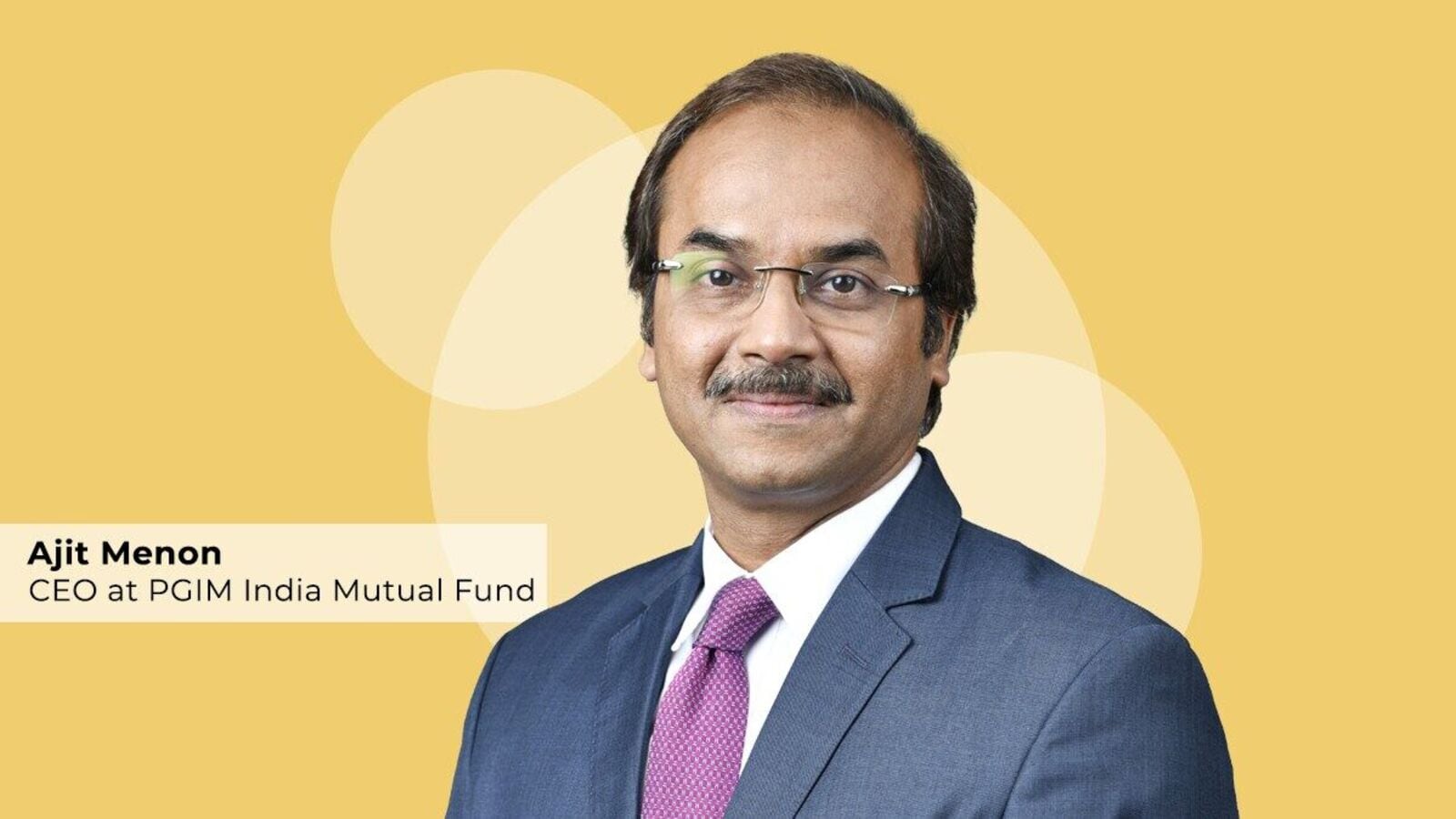You can get a loan for everything—except retirement, says Ajit Menon, CEO of PGIM MF

I’m hanging up my boots, not my gloves, says Ajit Menon with calm certainty, the kind that comes from years of intentional choices, not just in business, but in life.
At 54, Menon has announced to step down as CEO of PGIM India Mutual Fund next year. Known for his clarity of thought, steady leadership, and investor-first mindset, his exit feels different. It’s not about walking away from something; it’s about walking toward something else, entirely on his terms.
In an interview with Mint, Menon reflects on his early decision to retire next year when he turns 55, the planning that made it possible, and what his next chapter looks like. It’s a rare glimpse into a professional transition led not by burnout or compulsion, but by clarity and long-range thinking.
Q. Being able to retire at 55 is not a small feat, and only a few manage to achieve it. When did you think of this goal, and how did you reverse-engineer your life and finances to make it happen?
The goal of quitting at a specific age, while always in the background, took concrete shape around 12 years ago as my wife Alinaa and I put pen to paper for our financial plan with help from our advisor. We started by defining all the goals we wanted, and with help from our advisor, we started reorganising and allocating our current assets and future income to those. Our advisor helped bucket each one. It meant that we exit some assets, pay down loans and get a fix on our budgeting and the gaps. I simply picked the age of 55 to get to my retirement goal during that process at the start. The process of financial planning is the hero rather than the plan.
Q. Was there a defining moment or a life experience that made you sit down and consciously decide — ‘This is it, I want to retire at 55’?
Not in my case. I have truly loved the job, the firm and the industry and continue to do so. I just had a lot of interests and hobbies that I wanted to spend more time on at some point, which is not too late for one to lose motivation or energy. Having the financial freedom to get there was, in large part, due to having an advisor watch over a written plan for my wife and me and in some part a lucky coincidence due to the choice of career and family circumstances. Having great talent in the senior leadership at the firm helped solve for leaving the role in good hands.
Q. We often talk about retirement in numbers, corpus size, withdrawal rate, inflation, etc. But what was your emotional anchor? What kind of life did you envision after 55?
A busy one where I get to use my hands on creative pursuits and nature, as much as my head for my continuing work passions. A large extended family and circle of friends to spend time with. Continue to stay fit and healthy. My interest in behaviour science and the psychology surrounding long-term goal planning tells me that it is humanly difficult to think and plan so far ahead, which adds to the struggle we all face. It’s too hazy, so we de-prioritise in favour of prioritising nearer ones like a house, car or a child’s education and marriage. One hack is to positively frame and visualise what you will be engaged with and what happy moment you can visualise to use as an anchor for your current efforts. I hope to dance with my granddaughter at her wedding.
Q. Did you follow a specific asset allocation strategy or retirement planning framework — for instance, the ‘bucket strategy’, ‘4% rule’, or anything unique that worked for you?
You could say that we used the bucketing approach. Reducing the concentration of any specific asset class at the starting point, prioritising incremental income to specific goals, considering lifestyle choices to save more, like staying on rent to avail tax benefits or always buying our car second hand. In both cases, we could get a larger house and a high-end car without breaking the bank. Those are personal choices, though. For the withdrawal phase, our advisor has planned the buckets over the period, which includes equity for longer-term requirements, to be watchful for any risk to the sequence of returns.
Q. Can someone achieve financial freedom at an early age by only having a job and investing in stocks?
Depends on the job and the stocks. But mostly it will depend on luck and not skill to succeed. The risk here is that your income is dependent on just one skill. As my CIO likes to remind us of the advantages of using a professional fund manager or advisor, the difference between luck and skill is that skill is repeatable. So I would say that a young person with multiple skills that can be monetised, investing in stocks linked to a plan with the help of her advisor, can achieve what she wants.
Q. In retrospect, if 35-year-old Ajit Menon could hear from 55-year-old Ajit today — what one piece of retirement planning advice would he be most surprised to hear?
An insight I learnt from meeting experienced advisors who deal with the practical and personal challenges of many households that they deal with day in and day out. That “Retirement is the only financial goal of your life for which you do not get a conventional loan.” So prioritise it. Your child will exceed your expectations and get a bigger college, you may want to stretch to get that extra bedroom or upgrade your car. You will get an education loan, a home loan and a car loan to fill the gap. But there is no “retirement loan”. And reverse mortgage, which more developed markets use as one solution, hasn’t developed fully yet in India. By the way, I am 54. I step down on August 31stand stay on as Senior Advisor to the team until March 26, the month in which I turn 55.
Q. You said to someone you’re hanging up your boots, not your gloves. What does the next innings look like, and has your financial planning made this freedom possible?
Yes. Continuing with my passion for retail investors and the subject of retirement at work. A bit of community work in an unrelated but important area that involves nature. Getting back to a few creative hobbies and spending time with near and dear ones. And yes, I would say that having a financial plan is what has helped all the above.




